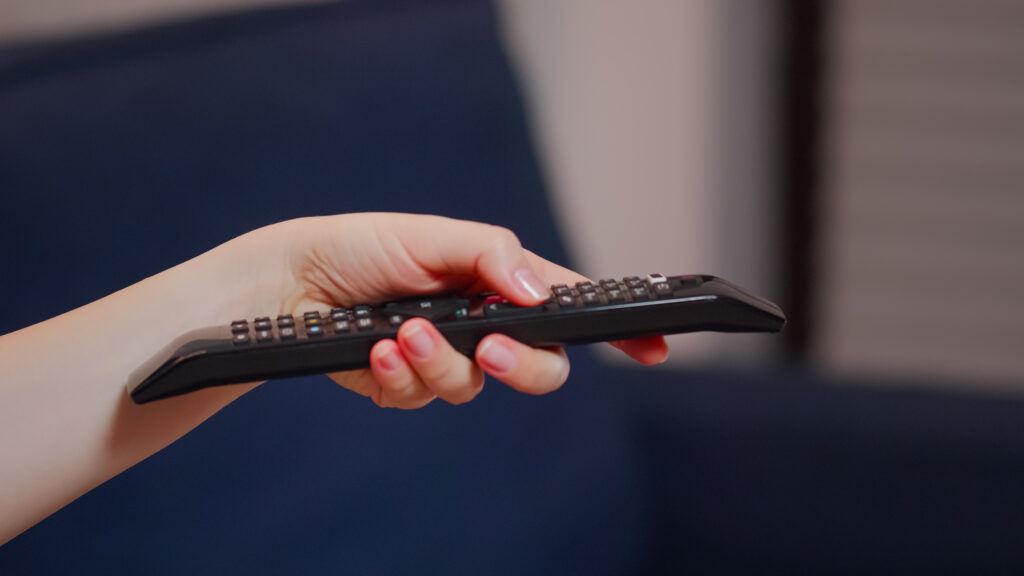IPTV vs Cable TV in the USA: A Comprehensive Comparison
Wondering whether IPTV or Cable TV is the better choice for your household? Read our detailed guide comparing IPTV vs Cable TV in the USA across cost, quality, flexibility, and more.

Introduction
As technology continues to evolve, the way Americans consume television content has shifted dramatically. While Cable TV has been the traditional method for decades, the rise of IPTV (Internet Protocol Television) is rapidly challenging its dominance. With both options available, many households are faced with a tough decision: IPTV vs Cable TV — which offers the best value, quality, and experience?
In this article, we’ll explore the key differences between IPTV and Cable TV in the USA, comparing them across various aspects such as cost, channel variety, convenience, and more to help you determine which option is the better choice for your household.
What is IPTV?
IPTV stands for Internet Protocol Television. Unlike traditional Cable TV, which relies on satellite signals or cable infrastructure, IPTV streams television content over an internet connection. This allows users to access live TV channels, on-demand content, and even movies via their internet service, making IPTV a more flexible and often more customizable option than Cable TV.
What is Cable TV?
Cable TV has long been the dominant method of delivering television content in the USA. It works by transmitting signals through coaxial cables or fiber-optic networks directly to your television. Cable providers often bundle their services with internet and phone packages, making it a comprehensive option for households looking for one-stop solutions for entertainment and communication.
Cost Comparison: IPTV vs Cable TV
One of the most significant factors in choosing between IPTV and Cable TV is the cost.
- IPTV Cost: IPTV services tend to be more cost-effective. Subscription plans are often more flexible, with the option to pay monthly or annually. Since IPTV doesn’t require specialized hardware like a cable box, installation fees are usually lower. The price range for IPTV services can vary based on the provider and the type of content offered, but it generally falls between $10 to $50 per month.
- Cable TV Cost: Cable TV, on the other hand, often comes with higher monthly fees. Packages typically range from $50 to $150 per month, depending on the provider and the channel package. Additionally, many cable subscriptions come with equipment rental fees for cable boxes, which can add another $10 to $20 to the monthly bill. There are also installation charges that can increase the overall cost.
Winner: IPTV
IPTV is generally the more budget-friendly option, especially for viewers who don’t require large, premium channel packages.
Channel Variety and Content
Both IPTV and Cable TV offer a variety of channels, but there are significant differences in how content is delivered and the flexibility of channel offerings.
- IPTV Channel Variety: IPTV services often provide access to a broader range of international channels, as well as niche content that is not typically available on Cable TV. Many IPTV services also allow users to customize their subscription by selecting specific channels or genres. Additionally, IPTV platforms frequently offer on-demand content, live streaming, and even access to exclusive movies and shows.
- Cable TV Channel Variety: Cable TV providers offer a set package of channels that includes local news, sports, entertainment, and premium channels like HBO or Showtime. However, customization is usually limited, and subscribers must often pay extra for premium or specialty channels. Cable services generally don’t offer the same level of on-demand or international content as IPTV does.
Winner: IPTV
In terms of channel variety and customization, IPTV takes the lead, especially for those seeking international or niche content.
Quality and Reliability
While both IPTV and Cable TV have improved in terms of quality over the years, there are some key distinctions.
- IPTV Quality: IPTV quality is dependent on the speed and stability of your internet connection. With a high-speed internet service, IPTV can deliver high-definition (HD) or even 4K resolution streams without issues. However, poor internet service can lead to buffering, lagging, or pixelation, which can degrade the viewing experience.
- Cable TV Quality: Cable TV generally offers consistent quality since it operates independently of your internet connection. Picture and audio quality are usually stable, and viewers are less likely to experience interruptions unless there’s a hardware issue or weather-related disruption affecting the satellite or cable infrastructure.
Winner: Cable TV
While IPTV can offer excellent quality, the reliance on internet speed means Cable TV is more reliable in terms of consistent picture and audio performance.
Convenience and Flexibility
Another important factor is how convenient and flexible these services are.
- IPTV Flexibility: One of IPTV’s greatest strengths is its flexibility. With IPTV, users can watch content on multiple devices, including smartphones, tablets, laptops, smart TVs, and streaming devices. IPTV services also allow for time-shifted viewing, meaning you can watch shows whenever you want, even if you miss the live broadcast. Additionally, many IPTV platforms offer apps that are compatible with iOS, Android, and other devices, giving users freedom in how they access content.
- Cable TV Convenience: Cable TV, on the other hand, is more limited in terms of flexibility. While some cable providers have begun offering apps or streaming options, the service is primarily restricted to your home TV. Watching cable content on the go typically requires a separate app or add-on service, and the availability of content outside the home can be limited.
Winner: IPTV
IPTV’s ability to stream on multiple devices and its flexibility for on-demand viewing make it a clear winner in terms of convenience.
Installation and Setup
- IPTV Setup: IPTV is generally easier to set up and doesn’t require as much equipment. All you need is a compatible device (like a smart TV, computer, or set-top box) and a stable internet connection. Many IPTV services allow users to download an app, enter their subscription details, and start streaming immediately.
- Cable TV Setup: Setting up Cable TV often requires a technician to install the service, which can take time and incur extra charges. You’ll also need a cable box, which can be bulky and adds clutter to your entertainment system. Additionally, each TV in your home may require a separate cable box, increasing the complexity and cost of the setup.
Winner: IPTV
IPTV’s simple setup process and minimal equipment make it the more user-friendly option.
Legal Considerations
While both IPTV and Cable TV have legitimate and licensed providers, IPTV has seen a rise in unlicensed or illegal services.
- IPTV Legal Concerns: It’s important to ensure that the IPTV service you’re using is fully licensed and legal. Unlicensed IPTV services often stream pirated content, which is illegal and can result in fines or other legal actions. Always choose a reputable provider that offers properly licensed content.
- Cable TV Legal Concerns: Cable TV services are generally regulated and licensed by the FCC (Federal Communications Commission) in the USA, meaning there are fewer legal concerns when choosing a traditional provider.
Winner: Cable TV
Cable TV is safer from a legal standpoint, but as long as you choose a legitimate IPTV service, it can also be a safe option.
Future of TV: Is IPTV the Future?
With the growing trend of “cord-cutting” in the USA, where people are moving away from traditional Cable TV, IPTV is increasingly seen as the future of television. More Americans are now opting for internet-based services like IPTV, which offers greater flexibility, lower costs, and a wider variety of content.
Conclusion: Which Is the Better Choice?
When it comes to IPTV vs Cable TV in the USA, the best option largely depends on your needs:
- If you value cost-effectiveness, flexibility, and access to international content, IPTV is the way to go.
- If you prioritize consistency in picture quality, reliability, and legal certainty, Cable TV may still be the better choice.
However, with the continued improvement in internet infrastructure and the growth of IPTV services, IPTV is increasingly becoming the more popular and future-proof choice for American households.



 العربية
العربية English
English Français
Français Deutsch
Deutsch Español
Español